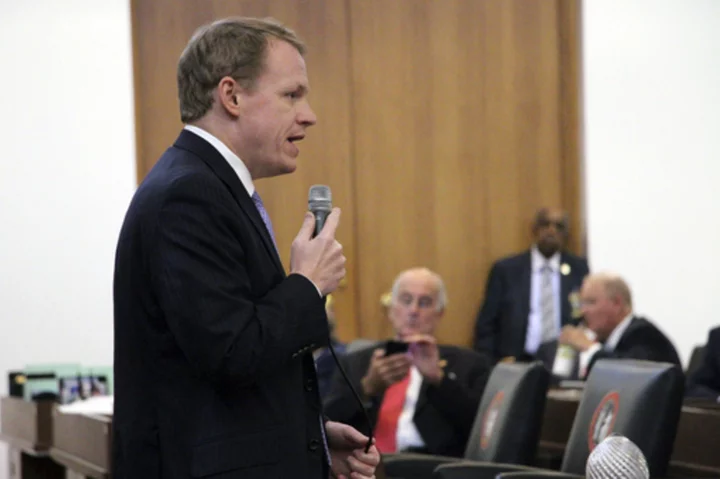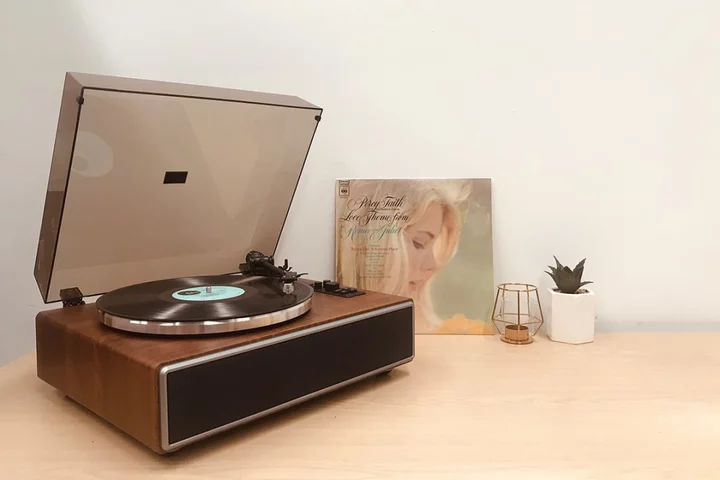RALEIGH, N.C. (AP) — A Republican effort to shift control of the North Carolina State Board of Elections from the governor to legislators closed in on final General Assembly approval Tuesday as the House passed a bill that could oust the state elections director a few months before the November 2024 election.
On a party-line vote of 60-41, the chamber approved a slightly different version of a bill the Senate passed in June that would strip the governor's power to appoint state elections officials, as well as local administrators in all 100 counties. One more Senate vote is required before it reaches the desk of Democratic Gov. Roy Cooper, who is expected to veto it. Republicans hold narrow supermajorities needed to override his vetoes.
Should the bill become law, the change could result in potentially hundreds of new election board members taking office next summer as the nation’s ninth-largest state prepares to cast ballots for president, governor and scores of other positions.
The board, which currently consists of three Democrats and two Republicans, would grow to eight members under the bill and likely become an even split between the two major parties. The House speaker, the Senate leader and the minority party leaders in each chamber would each get two picks.
Rep. Destin Hall, a Caldwell County Republican, said the changes are needed to improve fairness and public trust.
“It's not hard to see how folks might think there are problems in our elections when the very entity that's overseeing those has a partisan lean,” Hall said during floor debate Tuesday. “This bill takes that partisan lean out of it.”
Former President Donald Trump’s false claims that the 2020 election was riddled with fraud have prompted a wave of GOP election laws and administrative overhauls as he mounts his campaign to take back the White House. North Carolina was Trump’s narrowest victory in 2020 and is expected to be a battleground next year.
The legislation also raises the possibility of replacing current Executive Director Karen Brinson Bell if she is not retained by the new board. If the board cannot hire an executive director by next July 15, Republican legislative leaders would make the appointment themselves. A new top administrator could start work fewer than four months before Election Day.
“This is a recipe for potential chaos in a state where elections have been run very well in the past, and where the margins of victory have been among the most narrow in the country,” David Becker, executive director of The Center for Election Innovation & Research and a former U.S. Justice Department lawyer, said recently.
Democratic Rep. Allen Buansi, of Orange County, raised concern that crucial decisions could “essentially get held hostage because of a tied board.” That gridlock, he argued, would benefit the party that controls the legislature because the bill would let the General Assembly intervene in some cases when election boards can't make personnel decisions.
The bill is the latest in a yearslong struggle between the GOP-led legislature and the Democratic governor to reshape the power balance in a Southern swing state. Past attempts to erode Cooper’s election authority have been have been struck down by courts or defeated by voters.
North Carolina’s 7.3 million registered voters already must navigate new voter identification requirements, beginning with local elections this fall, after the Republican-controlled state Supreme Court upheld a 2018 law in April.
Another bill that the House approved and sent to the Senate on Tuesday would create a public electronic record of voter choices for each ballot item. Under current law, voted ballots and related records are confidential and only election officials may access them.
Although identifying information would be redacted from those records, state elections board attorney Paul Cox raised concern Tuesday that some precincts are so small or receive so few ballots that voters could still be identified.
“You have only a few Democrats in one precinct or you only have a few Republicans in one precinct, so using the cast vote record, seeing which contests were voted on by each ballot, you could use that and other information that's publicly available to identify how a particular voter voted,” Cox said.
An election bill Cooper vetoed last month that is awaiting override votes in the legislature would end a grace period for voting by mail and allow partisan poll observers to move about voting locations, which critics say could lead to voter intimidation.
___
Hannah Schoenbaum is a corps member for the Associated Press/Report for America Statehouse News Initiative. Report for America is a nonprofit national service program that places journalists in local newsrooms to report on undercovered issues.
___
Associated Press writers Gary D. Robertson in Raleigh and Christina A. Cassidy in Atlanta contributed to this report.









